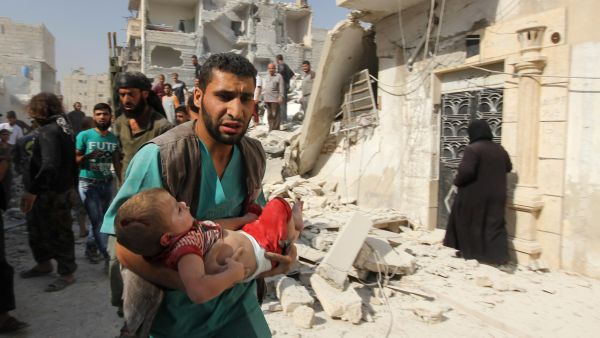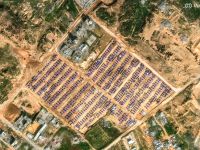This is Aleppo: in a world where doctors have become martyrs, and hospitals battlegrounds
As regime fighter jets attacked his hospital head on, Dr. Maaz did not run for his life. He ran to the incubators to try and save as many lives as he could. His life was not one of those that made it out of that building alive, along with 27 others.
His death is not a number. Dr. Maaz’s murder is a war crime, plane and simple. The more horrifying part is that this is not a lone event. His death is one of the most worrying trends of the Syrian Civil War, and conflicts of the 21st century. It’s becoming a trend.
Continue reading on A Separate State of Mind
Baghdad locals still fear being kidnapped by militias or police
On April 9 this year, armed men wearing uniforms drove up to Sudanese man on the street in the crowded Karadah area of Baghdad. They bundled the man into an SUV and drove away. And to this day the people in this neighbourhood, who witnessed the abduction, have been unable to find out what happened to the man. But they also say that they’re hardly surprised by this. This sort of thing has happened here, and particularly to outsiders, before.
Kidnappings and random abductions were more commonplace in Baghdad between 2006 and 2007 at the height of sectarian tensions in the Iraqi capital. Every day, locals were kidnapped simply because they were of another ethnicity or religious sect. If they were lucky, they might be ransomed or they could be held in an official prison for some time. If not, they turned up dead or, often worse for the relatives, were simply never seen again.
Continue reading on Niqash
The world's richest Arabs - and what they're worth
The world has 45 Arab billionaires with more personal wealth than the combined yearly budgets of the 11 poorest Arab countries, according to a yearly list of the wealthiest people.
The Forbes Rich List 2014, published this week, shows that the 45 control $166bn, much more than the combined yearly budget of Algeria, Morocco, Jordan, Tunisia, Mauritania, Yemen, Comoros Islands, Djibuti, Sudan, Palestine and Somalia, which spend a collective $146.4bn a year.
Continue reading on The New Arab







